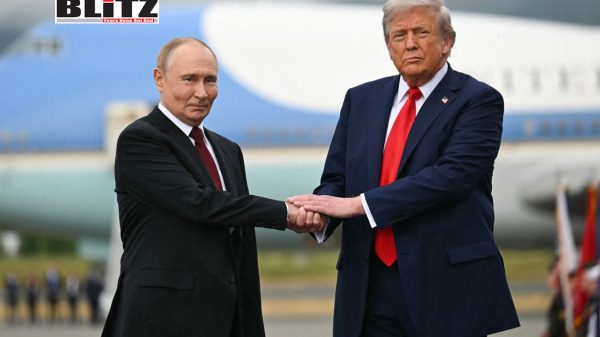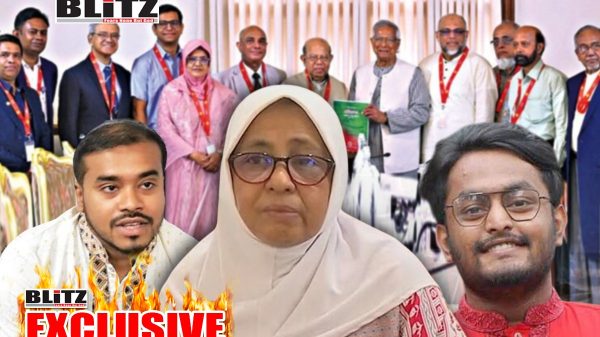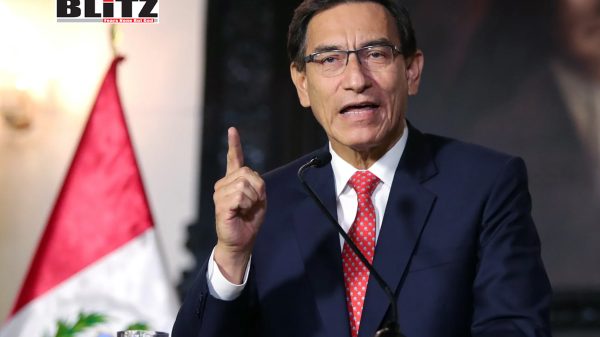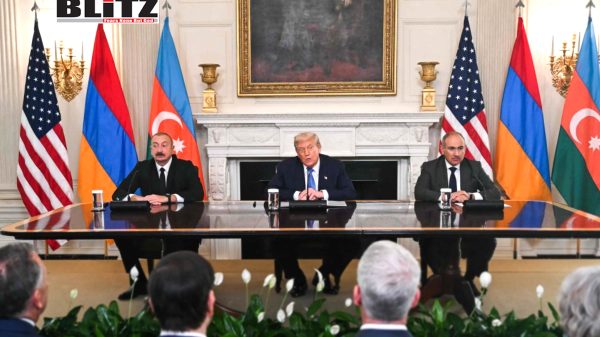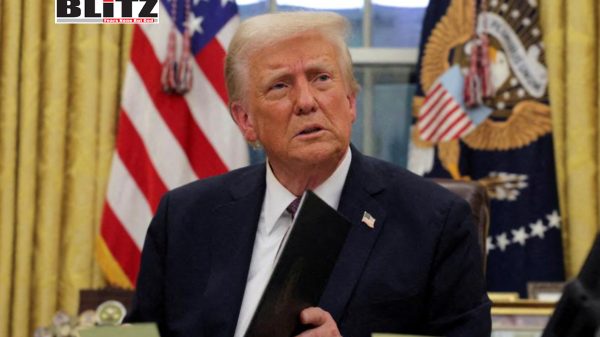Palestinian envoy blocks AUW enrollment, alleges Israeli ties with western universities
- Update Time : Sunday, August 17, 2025
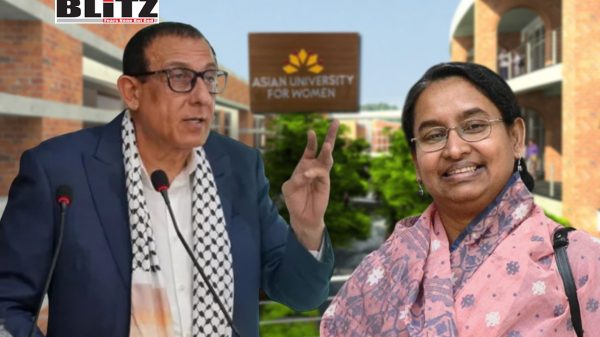
In an extraordinary move that raises more questions than answers, the Palestinian envoy in Dhaka, Yousef S. Y. Ramadan, has accused Western universities – and now Bangladesh’s Asian University for Women (AUW) – of being infiltrated by “Israeli interests”. Ramadan’s sudden August 14, 2025 press conference, held nearly two years after AUW awarded scholarships to 200 Palestinian students, suggests not merely a concern for student safety but a calculated political maneuver. His sweeping denunciation of US institutions as “all connected to Israel” and his attempt to block Palestinian students from studying in Bangladesh appear to serve a wider agenda – one that aligns suspiciously with the narratives of the Yunus regime, currently seeking to discredit the government of former Prime Minister Sheikh Hasina.
At a sudden press conference held at the so-called Palestinian embassy in Dhaka, Ramadan claimed that many Western and Bangladeshi educational institutions maintain hidden ties with Israel. For this reason, he said, Palestinian authorities have instructed Bangladesh that female students from Palestine will not be studying at AUW.
According to Prothom Alo, about 200 students from Gaza had been granted scholarships by AUW roughly a year and a half ago. Bangladesh’s Ministry of Home Affairs initially granted visa-on-arrival permission to 189 of them in October last year. They were expected to travel via Jordan and arrive in Chattogram by mid-2025. However, in June this year, Chattogram police informed AUW that the visa-on-arrival approvals had been canceled.
Ramadan defended the embassy’s opposition to AUW placements, citing multiple concerns: alleged Israeli affiliations, the involvement of global donors linked to Western governments, and safety risks following past unexplained student deaths at AUW involving one Afghan and one Lao student.
The envoy accused AUW of harboring connections with figures such as former UK Prime Minister Tony Blair – whose wife Cherie Blair served as AUW’s first chancellor. He alleged that Blair has supported controversial projects seen as undermining Palestinian sovereignty, including what he described as the “Gaza Riviera ethnic cleansing project”. Ramadan further claimed Cherie Blair attempted to pressure Palestinian authorities into approving AUW placements, even if it meant coordinating through the Israeli agency COGAT.
“The situation in Gaza remains dire, with more than 2.2 million people under siege, facing bombings, forced migration, and starvation”, Ramadan said. “Bangladesh has consistently supported Palestine’s cause and must not aid institutions aligned with Israeli objectives, particularly those seeking to ethnically cleanse Palestinians from Gaza”.
He also criticized AUW’s donors – including the Bill and Melinda Gates Foundation, Bayer AG, and Direct Relief – for alleged “associations with Israeli causes”. According to him, at least five Western governments, including the United States, pressured the Palestinian mission to approve AUW placements on humanitarian grounds. “These countries do not even recognize Palestine, nor have they halted military support to Israel”, he said, adding emphatically, “Palestinian students are not for sale”.
Currently, more than 70 Palestinian students are enrolled at various institutions in Bangladesh. Ramadan said the embassy plans to expand these numbers through approved and secure channels, adding that over 70 Bangladeshi universities are formally open to Palestinian students.
AUW, founded by Harvard graduate Kamal Ahmad in the mid-1980s, was ratified by the Bangladesh Parliament in 2006, granting it autonomy and international recognition. The university’s website highlights its independence, academic freedom, and tax-exempt status. It has received significant land allocations – over 140 acres – from the government of Bangladesh.
Ramadan also pointed to AUW’s history of seeking international funds for Palestinian students. He revealed that former education minister and AUW Board of Trustees chair Dipu Moni had appealed to Qatar for millions of dollars in financial support (US$15,000 per student annually, totaling US$15 million over five years for 200 students). “Qatar’s willingness to fund this was acceptable”, Ramadan said. “But funding sourced from organizations aligned with Israel is not”.
He claimed AUW’s push to admit 500 Palestinian female students in 2023 was primarily motivated by a desire to collect donations, calling it “a mere cash-making venture”.
“Our position is unequivocal”, Ramadan stressed. “Palestinian students, especially female students, are not commodities and are not for sale in political or institutional agendas. The embassy will continue to support Palestinian students in Bangladesh – but only through safe and principled arrangements”.
Yet a pressing question remains: why did the Palestinian envoy choose to raise these allegations now – two years after AUW first extended scholarships to Palestinian students? Is this sudden outburst linked to his deeper connections with the Yunus regime, which has been desperately trying to malign the government of former Prime Minister Sheikh Hasina? Ramadan’s sweeping claim that “all educational institutions in the United States are connected to Israel”, followed by similar accusations against AUW in Bangladesh, seems less about protecting Palestinian students and more about advancing a political agenda.
Bangladesh does not even recognize Israel, nor does it permit its citizens to travel there. What, then, is the real motive behind this dramatic press conference? Is the Palestinian envoy – and by extension his government – attempting to inject divisive allegations into Bangladesh’s education sector under the guise of solidarity, while conveniently aligning with the narratives of a regime eager to delegitimize its predecessor? These questions strike at the heart of Ramadan’s credibility and expose the political undercurrents behind his remarks.




